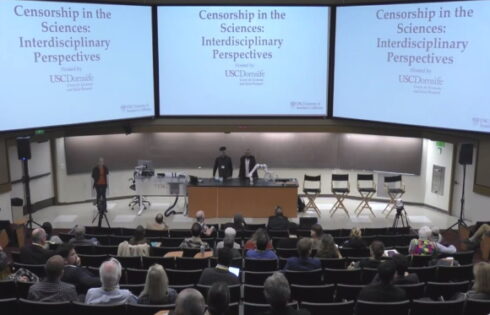
We noted earlier this week that the University of Minnesota’s new regents were making trouble for the administration by demanding more transparency on school spending.
They’re doing it again now in the context of the school’s new “affirmative consent” policy for sex between students, the Minneapolis Star Tribune reports.
President Eric Kaler has delayed implementation of the “well thought through” policy, which presumes the guilt of students who are accused of sexual assault, because the public is freaking out about it:
On Wednesday, Regent Michael Hsu raised concerns about the legal implications of the proposal, which was poised to take effect at the end of a 30-day comment period next week. Hsu said he’d received numerous e-mails and phone calls in the wake of recent news stories about the policy, which critics say would stack the deck against the accused in any disciplinary proceeding.
“I think we need to make sure everyone knows what we’re doing,” Hsu said.
 The policy won’t be implemented until September “at the request of Board Chairman Dean Johnson, after a last-minute debate at Wednesday’s regents meeting,” the Star Tribune said:
The policy won’t be implemented until September “at the request of Board Chairman Dean Johnson, after a last-minute debate at Wednesday’s regents meeting,” the Star Tribune said:
Hsu said he wants to hear from the U’s legal counsel about the implications of the policy. Nationally, civil-liberties groups have argued that such rules are unfair in campus disciplinary cases, because they put the burden of proof on the accused.
Hsu proposed that the regents delay the implementation, sparking a heated discussion about whether the board should interfere with such an administrative decision.
Hsu managed to draw several regents to his side, provoking Johnson’s compromise offer. But the delay is pissing off the professional-victims’ lobby at UMinn, as Ashe Schow at the Washington Examiner reports:
Student body president Joelle [Stangler] started a petition on Change.org requesting the policy be implemented before students return in the fall. At the time of this writing, the petition has gained nearly 1,500 signatures. If every one of those signatures is a U of M student, that would account for about 3 percent of the student population.
Strangler’s reasoning behind delaying the policy until the middle of the school year does make sense though. “By delaying the policy, we will forgo a clean implementation at the beginning of the academic year and risk attempting to educate people about two different policies and miss out on the optimal time frame to educate new and returning students,” she wrote.
Of course, not implementing the policy at all would solve that problem as well.
Read the Star Tribune and Examiner stories.
Like The College Fix on Facebook / Follow us on Twitter
IMAGES: Michael Grimes/Flickr, Michael Hsu/Facebook






Please join the conversation about our stories on Facebook, Twitter, Instagram, Reddit, MeWe, Rumble, Gab, Minds and Gettr.